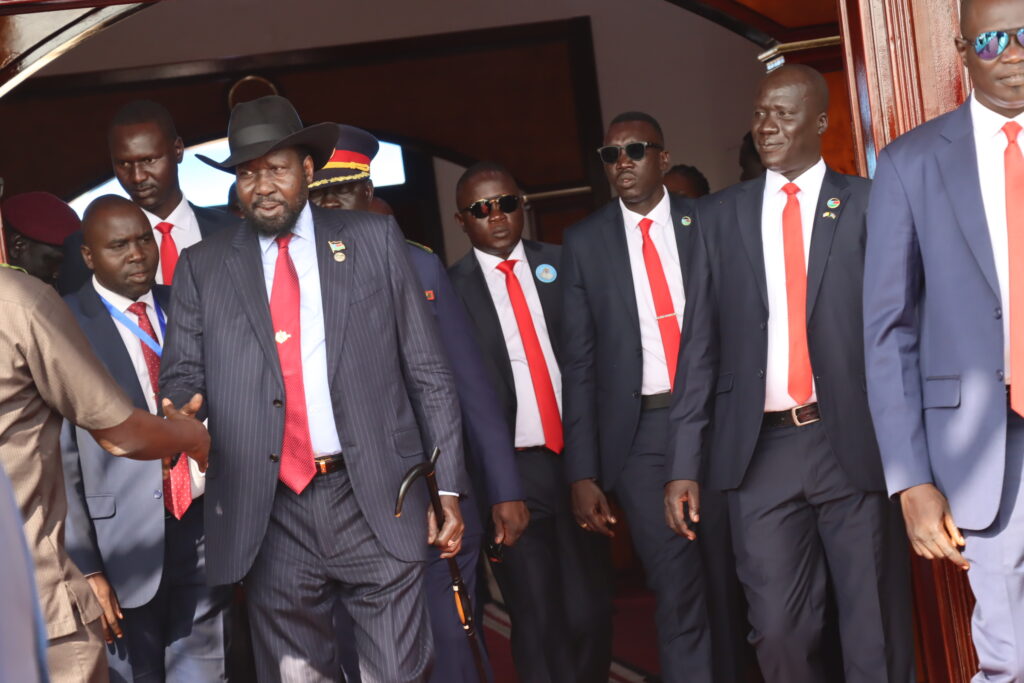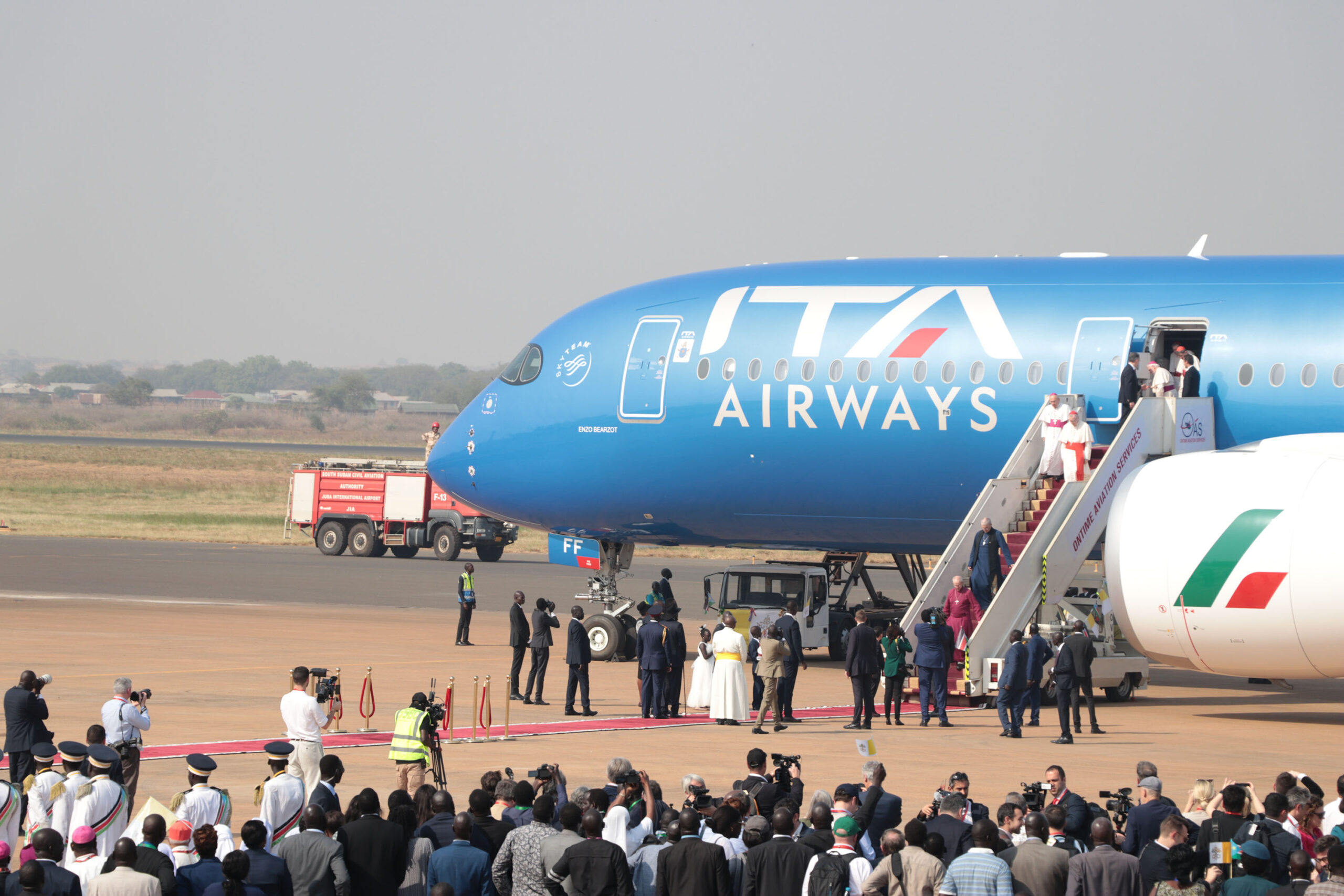PAPAL VISIT SOUTH SUDAN: Pope Francis’s Visit to South Sudan, an Ecumenical Armistice to Political Rivalry.

South Sudan President Salva Kiir Mayardit Arrive to receive Pope Francis at Juba International Airport
By Elizabeth Asasha
Pope Francis’ official visit to South Sudan is expected to breathe a fresh air of peace and reconciliation in the youngest sovereign state in the world which has been grappling with protracted instability.
With the completion of his visit to the Democratic Republic (DRC), the Pope has landed in Juba this Friday 3rd February for a historical first papal visit to the Republic of South Sudan since it gained independence from Sudan on 9 July 2011.
The journey, termed by many as one of the challenging and “defining moments” for the Pope’s papacy and the Catholic Church worldwide, is projected to spark a transformation effect on the perceptions and behavior of the citizenry, and a consequent turning point in the country’s security situation.
The Pope’s trip to South Sudan is the sequel to his two-tier six-day ecumenical pilgrimage to Africa with a mission to help restore peace in the two countries that have experienced years of violence.
As political and ecclesiastical leaders flocked to welcome the head of the Catholic Church at Juba International Airport, many expressed confidence that the Pope’s message in his anticipated public address will serve as a non-sectarian armistice to the prolonged conflicts and civil wars in the country.
In consonance with the majority views, Mauro Garofalo who heads international relations at the Rome-based Community of Sant’ Egidio, a Catholic social service organization opines that “The Pope’s voice will be hugely an encouragement for the country but will also be a strong spur to the political classes to resolve the country’s problems.”
The Pontiff, in the company of the leader of the Anglican Church (Archbishop of Canterbury Most Rev. Justin Welby and of the Moderator of the Church of Scotland (Rev. Iain Greenshields) are expected to make an appeal for peace and reunion in this newest State with widespread recognition globally.
Garofalo contends that the ecumenical representation in the visit is key to resolving the long-standing political quagmire.

“This is a very important element in the South Sudanese crisis; the joint work of the Christian churches and denominations can represent an antidote to the ethnicism and political rivalry.” Garofalo told Agence France-Presse news agency.
In April 2019, Pope Francis, while leading a spiritual retreat for the political and religious leaders at the Casa Santa Marta in the Vatican, shocked the entire world when he knelt and kissed rivaling South Sudanese leaders Salva Kiir and Riek Machar on their feet.
The Pope demonstrated this act of humility while pleading with the leaders to end their political impasse and uphold peace to be, “worthy fathers of their nation.” A year earlier, the two main adversaries had agreed to a cease-fire, which has since stagnated.
The UN estimates that there are 2.2 million internally displaced people in South Sudan and an additional 2.3 million people who have fled the nation.
The Holy father’s visit which was initially scheduled for 2022 had to be postponed due to health reasons and the volatile political situation in his host nation.
The Papal ecumenical pilgrimage centered on peace and reconciliation commenced on Tuesday morning 31, January 2023 at Fiumicino International Airport in Rome. The completion of his journey will mark his 40th Apostolic Journey abroad, and the fifth to Africa since he was elected the supreme pontiff on March 13, 2013.


